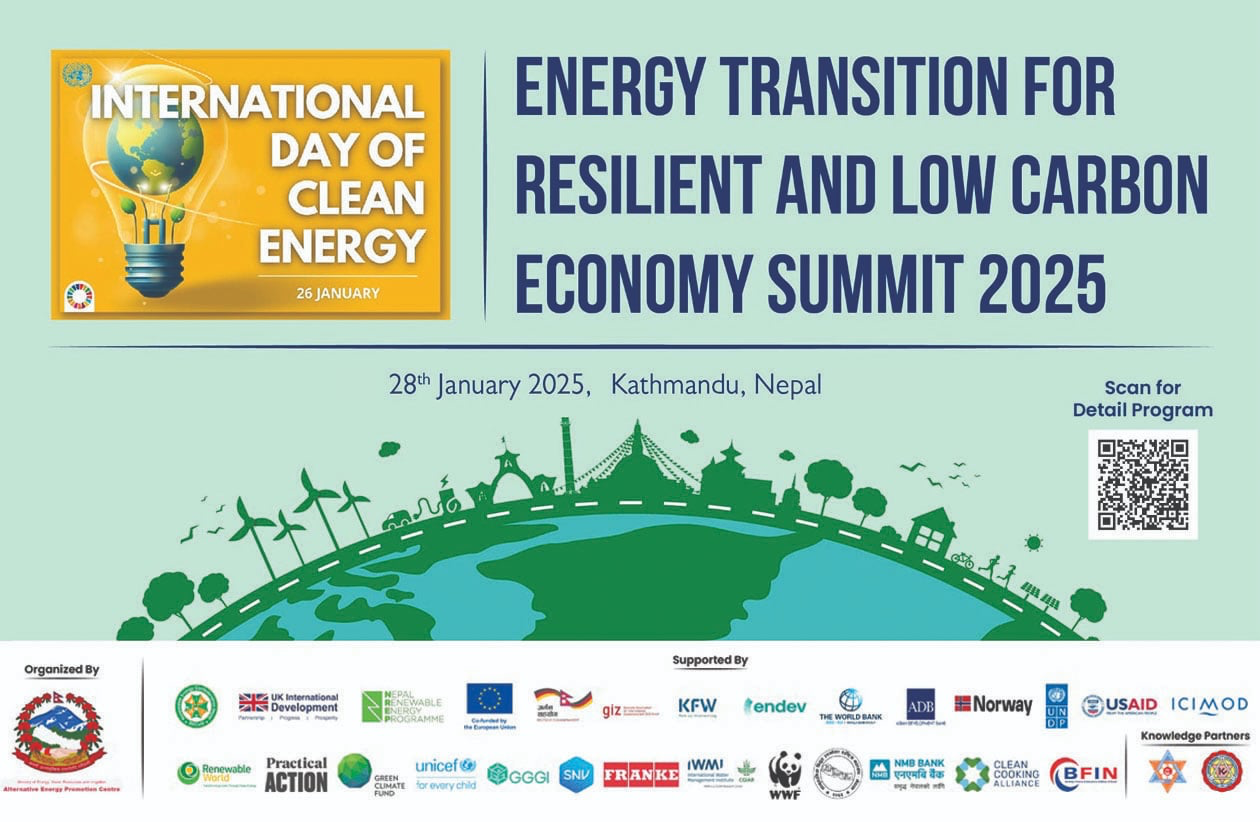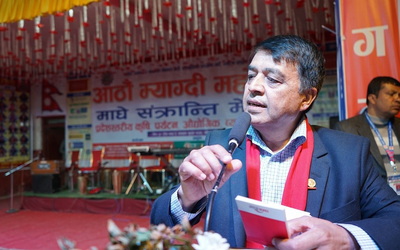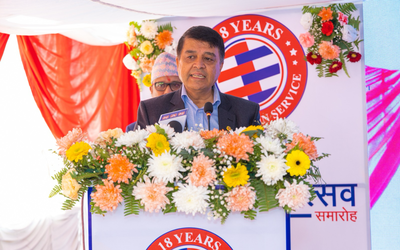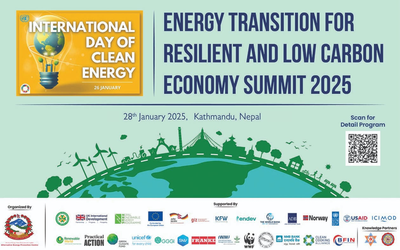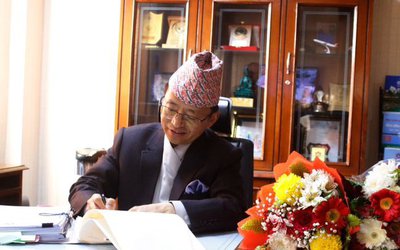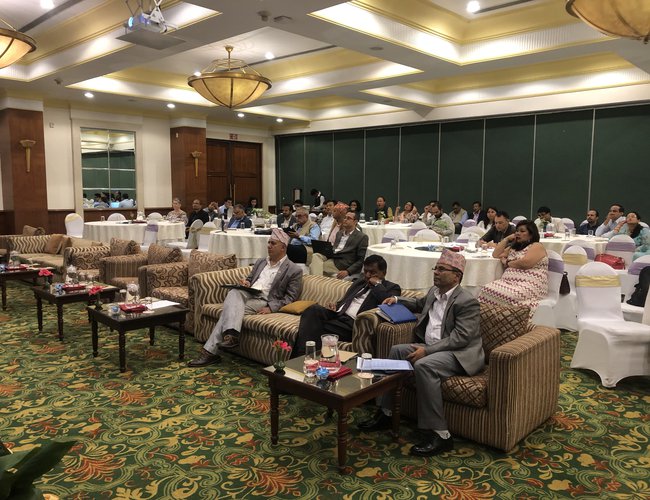
Over-ambitious growth and development plans, a surge in public expenditure in the wake of federalism, growing social security expenditure and changing landscape of official development assistance have accelerated Nepal’s public borrowing in the last few years. Although the present volume of debt does not signal immediate distress, the exponential growth in borrowing despite its limited effectiveness in building productive call for a cautious approach to prevent falling off the debt cliff, a latest study suggests.
The findings of the report was discussed at a programme titled “Assessment of Nepal’s public debt, and experiences of Pakistan and Sri Lanka”, organized by South Asia Watch on Trade, Economics and Environment (SAWTEE) during the seminar on Small State Capabilities: Navigating Competition and Foreign Policy Priorities in Nepal, led by the Asia Foundation (TAF) to initiate a discussion in the realm of Nepal’s public debt and assess whether Nepal is veering towards an unsustainable path of debt accumulation.
Though the concessionary nature of Nepal’s external debt indicates a low level of debt distress, the steady rise of government debt from a low of about 25 percent of GDP in FY 2014/15 to 41.5 percent of GDP in FY 2021/22 and structural shifts pose a risk pushing Nepal down the path of rapid debt accumulation, finds the SAWTEE study.

Presenting the study, Kshitiz Dahal, Senior Research Officer, emphasized that Nepal’s debt level is not at a level that causes serious debt distress, but its precipitous rise, increasing debt service obligations and questionable rate of return are a cause for concern.
Dr. Dilli Khanal, Former Member of Parliament and Senior Economist, put forth his point that a significant consideration has to be accorded to the potential of public debt to effect a change in growth and development.
Bhumi Ram Sharma, Chief, Public Debt Management Office (PDMO), made a point that the depreciation in exchange rate is one of the contributing factors to the increased external debt of Nepal. Highlighting the latest budget statement, Mr. Sharma said that the government of Nepal has committed to use external loans only for productive purposes.
Dr. Shiva Adhikari, Head, Central Department of Economics, Tribhuvan University, emphasized that the rate of return on loans taken should be considered in an assessment of Nepal’s public debt. Dr. Adhikari emphasized that given the annual increase in public debt, there is a limitation on expanding expenditures.
Dr. Faisal Bari, Senior Research Fellow, Institute of Development and Economic Alternatives (IDEAS), Pakistan, highlighted the factors driving Pakistan’s debt crisis including currency devaluation, export shocks and liabilities of state-owned enterprises. Furthermore, Ahsan Zia Farooqui, IDEAS, Pakistan, added that years and years of fiscal and external sector deficits, and borrowing in dollars and investing in rupee-generating projects have contributed to the debt crisis.
Umesh Moramudali, IDEAS, Sri Lanka, mentioned that even as Sri Lanka’s per capita income increased and it started borrowing on international capital markets, it was not able to change the structure of its economy to be able to digest huge amounts of loans carrying high interest rates and short repayment periods. Moramudalli proposed potential solutions, suggesting that Sri Lanka should consider raising taxation levels and implementing reforms within state-owned enterprises to facilitate improvement.
The event saw the participation of around five dozen participants, including policymakers, academicians, researchers, and civil society.
- TARA (Nepal)-PHDCCI (India) Organised Leadership Development Program on “Global Transition In Leadership” At New Delhi
- Jan 27, 2025
- Business And Revenue Both will increase In Business Friendly Environment: President Dhakal
- Jan 27, 2025
- Indian External Affair Minister Dr. Jaishankar thanks FM Dr Rana for Republic Day wishes
- Jan 27, 2025
- Weather Forecast: Partly Cloudy In Kathmandu And Pokhara
- Jan 27, 2025
- Nepal Investment Mega Bank Ltd Has shifted Its Ganthghar Branch To Exhibition Marg
- Jan 26, 2025
